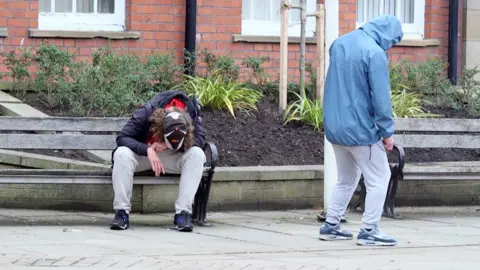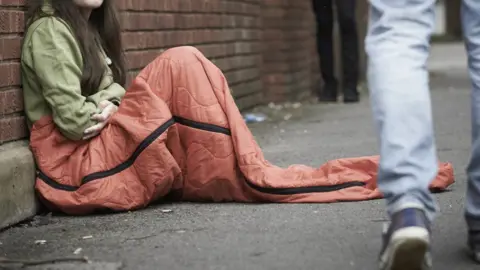Wrexham residents urged to befriend homeless to help tackle drug use
 BBC
BBCResidents of a town blighted by drugs problems have been urged to speak to homeless people to help tackle the stigma surrounding the issue.
Wrexham was dubbed "Spice Town" after images emerged of people under the influence of drugs at its bus station.
Figures from earlier this year showed it had 44 rough sleepers - the second most in Wales after Cardiff.
Project Home, started by Georgie Adams, urges residents to do their bit to help take pressure off stretched services.
The launch of its "befriending and mentoring scheme" was attended by 100 people with 40 saying they were interested in volunteering.
"We just want everyone to remember [homeless people] are people and want to talk," said Fia Lancaster McGrath, who is also leading the project.
"To know it's OK to go up to them and say hello and ask how their day is."
 Thinkstock
ThinkstockMs Adams believes people are so focused on the social issues around former "legal highs" they do not see the people who have hit rock bottom.
The synthetic drug Spice - also known as Mamba - was outlawed two years ago.
Its effects are highly visible and it is sometimes referred to as the "zombie drug" because of the state users fall into.
The aims of the project include providing safe accommodation for homeless people, helping to making visitors feel safe and ensuring business owners do not have to clean up drug paraphernalia.
Speaking about a relative's struggle with addiction, Ms Adams said that "all your basic instincts leave you" and "all you think of is a fix, it's an illness".
She added: "It was heartbreaking. It's really important we remember someone has hit rock bottom.
"We are so focused on the word Mamba. We don't look at all the things connected with it."
Wrexham council has unveiled plans such as using specially built containers to house homeless people over Christmas and New Year.
